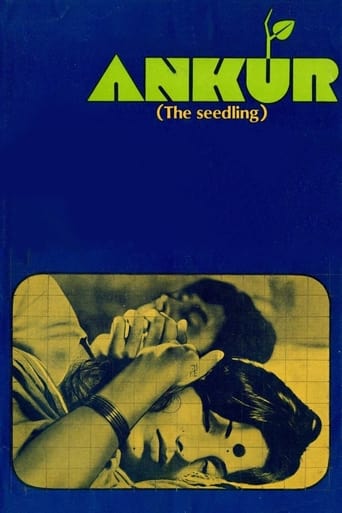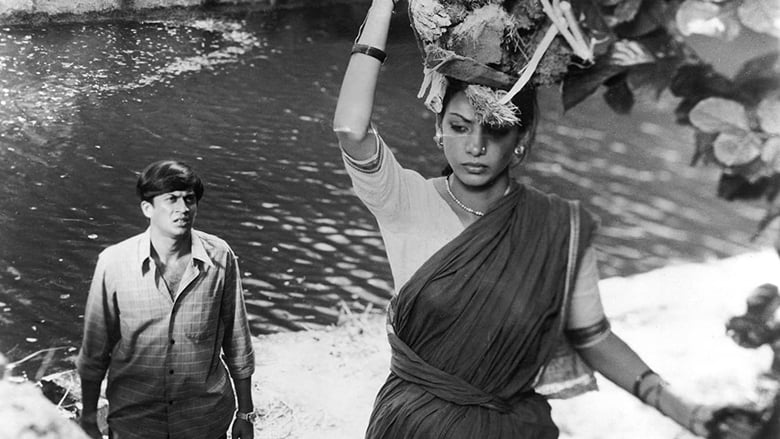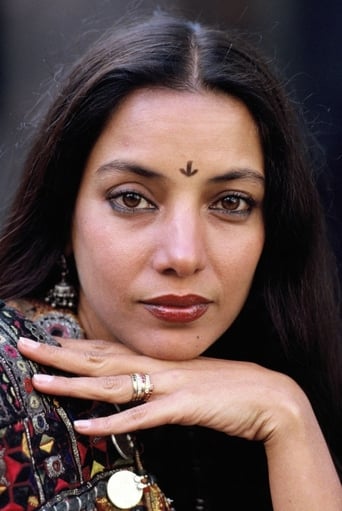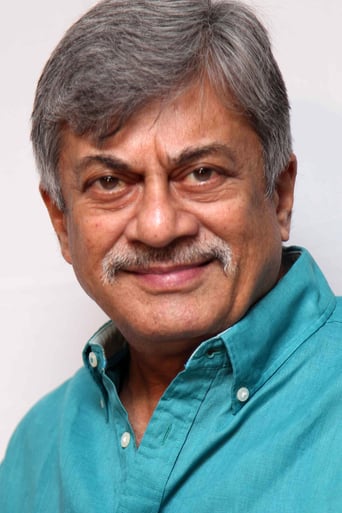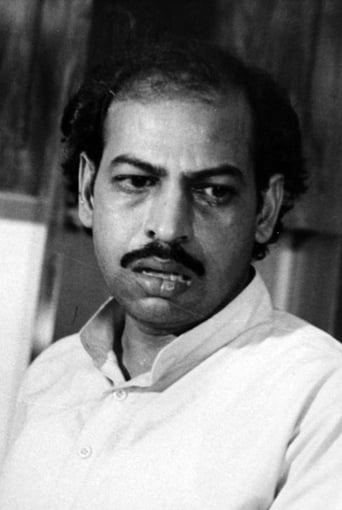Laxmi lives a poor lifestyle in a small village in India along with her husband, Kishtaya, who is a deaf-mute. Both husband and wife work for the wealthy landlord. The landlord's son, Surya, has to cancel his studies and return home to look after the estate, as well as formalize his marriage to Saroj, the girl he was compelled to get married to when he was very young. Shortly thereafter Kishtaya is apprehended stealing toddy from the fields, is severely beaten, left senseless, and when he recovers he absconds, leaving Laxmi alone to fend for herself.


Similar titles
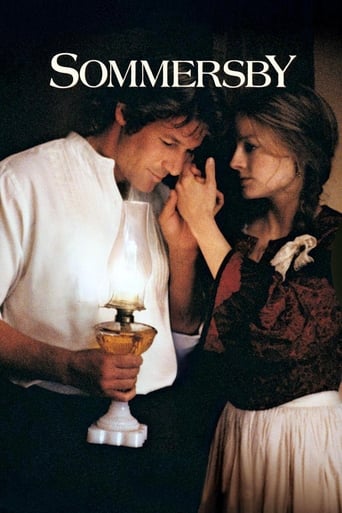
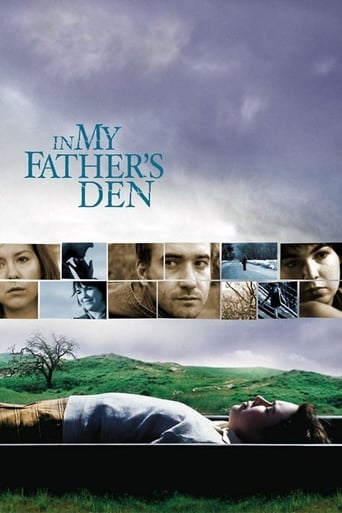
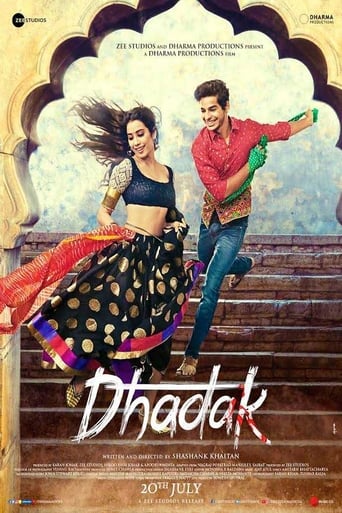

Reviews
Ankur means the Seedling. And indeed, this film was a seed to the parallel movement in films that ran in 70's and 80's. It's a wonderful depiction of the reality which existed then, and even today in some remote parts of India. The narrative is simple and indeed very slow, there are no major subplots as the main plot in itself is heart rending and superior to many films that have come till then. In an age, where superstars were being made, and Amitabh Bachhan was transformed as Angry Young Man, this film silently made its way into the public with a limited released and later on with the word of mouth. All because of many good traits that the film possesses.Shyam Benegal, who is now considered as a father of Parallel Cinema, wrote this long back and had to go to struggle to a lot to get this made. All this was done with a meager budget and the product that was obtained out of the hard work is a stand-out even today. Ankur is a pioneer and has it's moments of greatness considering the time, it was made. Subsequently, even Shyam Benegal was revered as a great film maker as many more wonderful films came from him.Now, today when I saw it, it felt a bit anachronistic and antiquated coz I do not see such kind of vulgar oppression anywhere now, may be there is but it's not reported or it's not there any more. Having said that, the emotions are universal and the feeling of being oppressed, the helplessness, the hopes that are there for well being and then a revolution being sparked. All this is put wonderfully. The last shot where a boy throws a stone at the Zamindar's house is of great symbolism and portrays a feeling that echoes with the poor who keep the poor as poor. The acting was superb, Shabana Azmi was a revelation and a blessed actor and we were grateful to have firstly and also grateful for makers to give her ample opportunities that helped her showcase her talent with an array of emotions. Thanks to Benegal to have found her and given Shabana to us. It needs applause in many areas, firstly for starting a kind of cinematic revolution in India. Yet, my only crib is the editing, I wish the film could have been slicker with sharp editing. It would have added to the pace and helped the new-age viewers like me. I am going with 4/5. It's a kind of film that's strong in social issues. But it's a laid back film that makes us recede in time. So just be warned of the pace coz it's a great film.
Very moving and powerful look at both the caste system and the treatment of women as objects in rural India, in the early 1950s. A young woman from the serf class is taken in and slowly seduced by her arrogant, handsome young "master" whose house she keeps. But when she becomes pregnant, and his promised child bride finally becomes old enough to join him in the house, our heroine is slowly, painfully pushed aside and locked out. The film is occasionally heavy handed in its politics, but the truth behind the story makes the slightly agit-prop nature forgivable. This has none of the singing, dancing and theatrics we have come to associate with modern Indian cinema. This hearkens back to the stark, quiet realism of Satyajit Ray, with complex characters and surprising subtlety.
Ankur is literally one the best Indian movies I have ever seen actually, it ranks as one of my most favorite films of all time. There is something to be said about the Indian Film Industry while it has altogether crumbled and become wildly glamorous and crass, many of the Indian movies since the advent of cinema and up until the early eighties were stupendous, thought provoking, and wholly a testament to the power of film.Ankur takes place in rural Andhra Pradesh, where a young man fights his father's wishes to run the family farm. He loses the battle, as all good boys would, gets married, and takes up agrarian life. His switch to that lifestyle is jarring, and he becomes rapidly bitter and enraged essentially greed takes a hold of him, and he is unable to control himself in many respects. The story continues, largely focused on his housekeeper, Lakshmi (Azmi), and his relationship with her and the surrounding townspeople. His seemingly consistent life of exerting semi-torture and quasi-love for those he encounters is turned upside down when his wife finally arrives.The character of Lakshmi an young, largely oppressed by still happy worker is not at all unlike the realities of life in India (especially at that time). Benegal uses her exceptional beauty as a sort of scaffold for the viewer not only are we sympathetic to her social predicament, but we are because of who she is, her kind words and fidelity.The most powerful aspect of the film is the director's play on family dynamic, caste, and power. These themes are so interwoven and densely packed into the film, that it is hard to imagine it all coalescing so beautifully in just under two hours. Benegal's films, sometimes noted in the Indian 'New Wave' movement, are generally as such. There is no doubt that this movie has many aspects that are far ahead of its own time and far too advanced for the people who watched it when it was released.Benegal's ability to deal with such vital themes makes the movie all the more amazing. Of course, from a simple entertainment standpoint, the movie is rife with short humor and phenomenal close up shots. In fact, there are many off screen elements to the movie that throw hints at the viewer about what is happening; Benegal almost emulates the great Thomas Hardy, except in film.RATING: 10/10
Ankur is to my mind one of the very best Hindi films ever made. Unusually for Hindi cinema, it is an entirely realistic film without singing and dancing. Since music is of huge commercial importance to Indian cinema, the pressure on directors to include it tends to be impossible to resist and is a constant problem facing 'serious' Indian film-makers. The late seventies was a very special moment with a concerted attempt by some directors ('New Cinema") to buck the commercial trend, of whom the most important were Shyam Benegal and Govind Nihalani (who is responsible for the cinematography in Ankur). Ankur was the first and most strikingly successful films of the "New India" movement (which only lasted some five or six years), Nihalani's Aakrosh (1980) being amongst the last. Working with a young cast (who formed a virtual repertory company for the "New Cinema" films and a committed team, Benegal was able to produce one of the freshest and most compelling of films. Without being in the least pretentious or even belonging to that nebulous category 'the art film', Ankur is a realistic drama without concession that managed also to be a significant commercial success. The acting is superb. Shabana Azmi has had a long and glorious career but has, in my view, never been better than in this, her first important role. Anant Nag (an actor who has never entirely received his due) is also as good here as I have ever seen him. Sadhu Meher (as the deaf and dumb husband) very deservedly won a national award for his performance and Priya Tedulkar is chilling as the narrow-minded malicious young wife. Nihalani's camera-work is also exceptional. In all it is one of those rare occasions when brilliant teamwork around a clearly thought-out project results in a near-perfect film.For the anecdote: There is a nice moment towards the end of the film where Surya (Anant Nag) is playing records and his wife requests something by Nimmi. Before playing the record, he corrects her by pointing out that the record is in fact by Lata. This is a very typical Benegal touch. Not only does it fix the date of the events (c. 1950) but is at once a comment on Hindi cinema history and on the character of the young wife. 1949 was the key year in establishing the absolute domination of 'playback' singers, notably Lata Mangeshkar whose annus mirabilis this was with massive hit-scores in three films, Barsaat, Mahal and Andaaz. In those days, playback singers were often uncredited and many (like the wife in the film) believed the songs to be sung by the actors and actresses themselves. The reference is particularly sardonic in a film that is itself songless. Nimmi made her début as an actress in Barsaat where she plays a simple mountain girl seduced by a cynical young man from the city and this became her typical role in subsequent films. The wife's preference for Nimmi is therefore a comment on the hypocrisy of her harsh attitude towards Lakshmi in the film.
